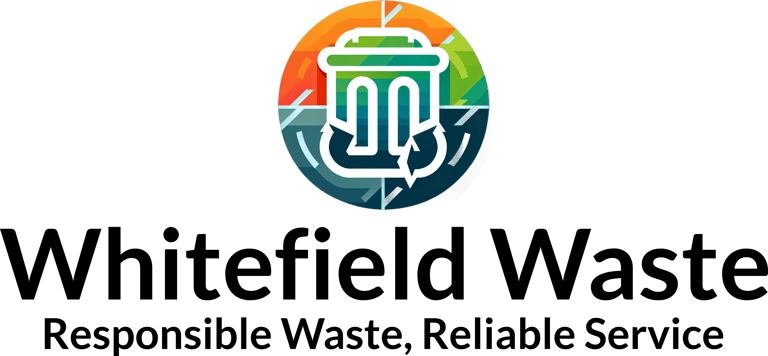The Importance of Secure Waste Bagging and Shredding Confidential Waste
8/22/20242 min read


Introduction
In today's world, properly managing our waste is more crucial than ever. With increasing attention on environmental impact and personal data security, understanding the importance of bagging waste securely and shredding confidential waste is essential. This blog post will explore why these practices are necessary to prevent vermin and safeguard your sensitive information.
Preventing Vermin Infestations
One of the primary reasons for bagging waste securely is to prevent vermin infestations. Rodents, insects, and other pests are always on the lookout for food sources, and improperly managed waste is a prime target. Securely tying waste bags ensures that these pests cannot access the contents inside, thereby reducing the likelihood of infestation.
Moreover, vermin can carry diseases, posing significant health risks to humans and pets. By securely bagging waste, you can help maintain a cleaner and healthier living environment. This simple yet effective measure can alleviate the burden on local pest control services and reduce the potential for disease transmission.
Environmental Impact
Another critical aspect of secure waste bagging is its environmental impact. Loose waste can easily be scattered by wind or animals, leading to litter that pollutes neighborhoods and natural landscapes. Properly contained waste stays in place, facilitating more efficient collection and disposal processes. This contributes to a cleaner environment and supports public health initiatives.
In addition, secure waste bags help in better recycling practices. When waste is separated and bagged appropriately, it is easier for recycling facilities to process materials correctly. This can increase recycling rates and reduce the amount of waste that ends up in landfills.
The Importance of Shredding Confidential Waste
In the digital age, protecting personal information is imperative. Shredding confidential waste is a key practice to safeguard sensitive data. Documents containing personal information, financial records, or other confidential content should never be discarded as is. Shredding these documents ensures that they cannot be reconstructed and misused.
Identity theft and data breaches are significant concerns today. Shredding documents that contain sensitive information reduces the risk of confidential data falling into the wrong hands. This is particularly important for businesses that handle large volumes of customer data, as they have a legal and ethical responsibility to protect that information.
Conclusion
In conclusion, securely bagging your waste is a crucial step in preventing vermin infestations and minimizing environmental impact. Additionally, shredding confidential waste is essential for data protection and preventing identity theft. By adopting these practices, individuals and businesses alike can contribute to a cleaner, safer, and more secure environment.
Sustainability
Reliable waste management for homes and businesses.
Contact
Support
whitefieldwaste@gmail.com
© 2024. All rights reserved. Whitefield Waste Clearance Services - 0161 399 4092
WHITEFIELD WASTE CLEARANCE SERVICES
Rubbish Removal Whitefield, House Clearance Whitefield, Garage Clearance Whitefield, Bin empty Whitefield, Office Clearance Whitefield, Man and Van Whitefield. Rubbish Removal Prestwich, House Clearance Prestwich, Garage Clearance Prestwich, Bin empty Prestwich, Office Clearance Prestwich, Man and Van Prestwich. .Rubbish Removal Simister, House Clearance Simister, Garage Clearance Simister, Bin empty Simister, Office Clearance Simister, Man and Van Simister. Rubbish Removal Heaton Park, House Clearance Heaton Park, Garage Clearance Manchester Garage Clearance Heaton Park, Bin empty Heaton Park, Office Clearance Heaton Park, Man and Van Heaton Park. Rubbish Removal Unsworth, House Clearance Unsworth, Garage Clearance Unsworth, Bin empty Unsworth, Office Clearance Unsworth, Man and Van Unsworth. Rubbish Removal Crumpsall, House Clearance Crumpsall, Garage Clearance Crumpsall, Bin empty Crumpsall, Office Clearance Crumpsall, Man and Van Crumpsall, Rubbish Removal Bury, House Clearance Bury, Garage Clearance Bury, Bin empty Bury, Office Clearance Bury, Man and Van Bury. Mattress Disposal Bury. Rubbish Removal Broughton. Radcliffe Rubbish Removal
